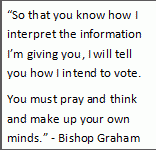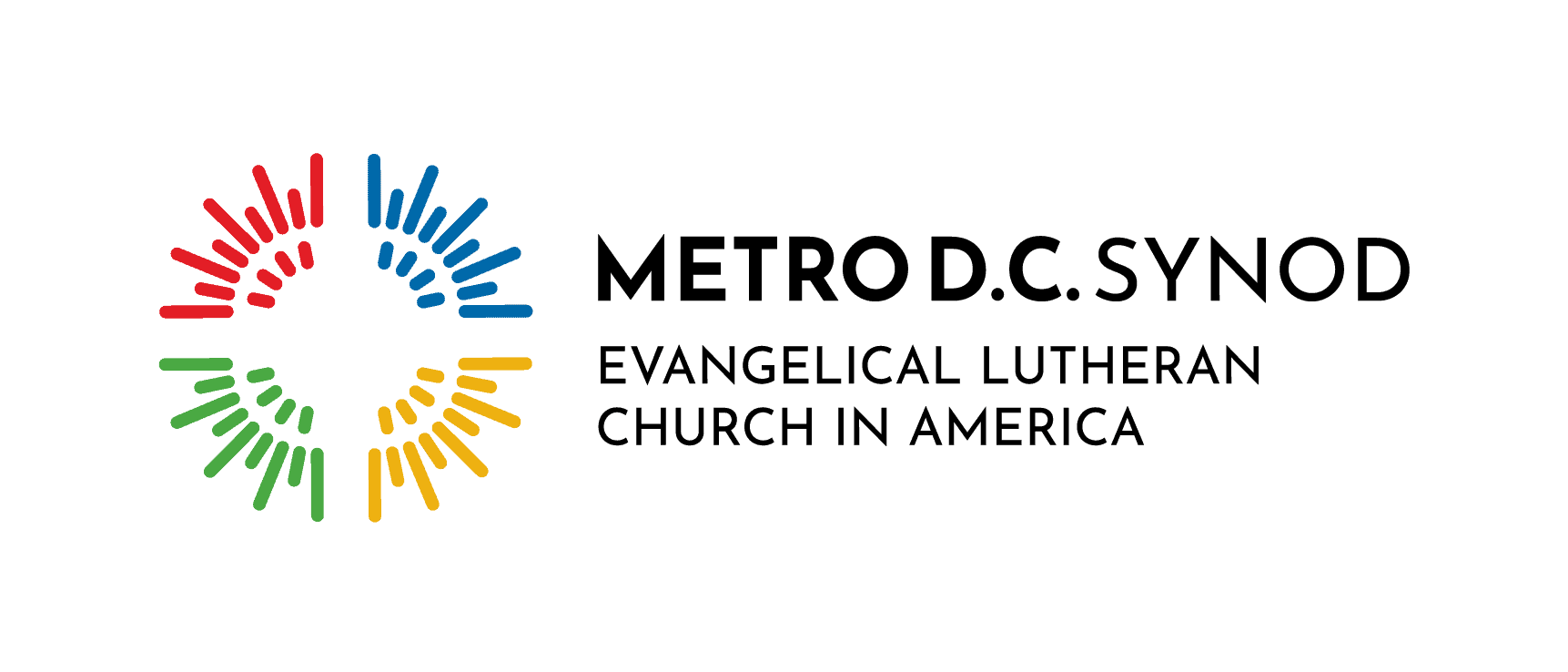From the Bishop’s Desk: About the 2012 Maryland Ballot Questions

Dear friends,*
As the 2012 general election gets closer, advertising about the questions on the Maryland ballot has gotten more and more intense. Several of the issues that are before Marylanders this year have drawn attention and money from all over the country.

Conscience and political life
Our ELCA social statements say that our church takes positions and makes statements to “inform the conscience of its members in the spirit of Christian liberty.”* This means that, though we wrestle together with the political life that helps shape our communities, we each bear responsibility alone before God for the way we vote, for the hopes and the dreams that we put into practice when we cast our ballots.
So that you know how I interpret the information I’m giving you, I will tell you how I intend to vote. You must pray and think and make up your own minds.
Maryland version of “The Dream Act”
Question 4 is one about which I can write easily. If this were to pass, young people who are not legal residents of this country would be eligible to pay in-state tuition at community colleges and four-year colleges. This is a Maryland state version of what is called “The Dream Act” on the national level.
The young people who would be affected by this provision have mostly lived in the U.S. since they were very young. To obtain the tuition benefits they would have to meet strict requirements, be graduates of a Maryland high school, and intend to apply for permanent residency.
I think that this is a relatively low-cost way for us to broaden the educational base of our communities and to show welcome to young people who have already demonstrated that they can be solid members of our communities. A vote in favor of this question is in keeping with positions that have been taken both by the ELCA and by our synod. I personally support this question.
Same-gender wedding participation
Question 6 concerns an issue about which there has been considerable debate. The General Assembly last spring passed a measure to allow same-gender marriage in Maryland, with the provision that the measure could be placed on the ballot by popular petition. A petition was circulated through the state, and so same-gender marriage is on the ballot next Tuesday. Same-gender marriage is already legal in the District of Columbia part of our synod.
What is on the ballot this year is a question that has been crafted with the intention of assuring that religious institutions and religious people are not required to participate in same-gender weddings that offend their consciences. In fact, pastors and priests always have the right not to marry couples for any reason.
This question seems to me to involve a basic matter of fairness (and I suspect that many people who have feelings against same-gender sex will still support the Question 6 for that reason). I believe that our ELCA social statement on human sexuality allows for principled voting both for and against this question. I believe that positions we have taken in our synod place us squarely in support of Question 6. I personally support this question.
Expansion of gambling
Question 7 is about the expansion of gambling in Maryland and specifically concerns Prince George’s County, where I live. If this question is adopted, casinos already in operation would be allowed to expand their offerings and a new casino would be licensed, almost certainly at National Harbor.
After all the hype and the noise, it seems as though this expansion of gambling will not add more money to the state’s school systems, though it may eventually add to the general fund.
The ELCA and its predecessor church bodies have generally spoken against gambling, out of a concern for the suffering it causes those who are already marginalized in society. And Lutherans usually have believed that games of chance are no way to fund the government or provide for the common good.
There is the argument that, having already decided to allow gambling, the citizens of Maryland have no reason not to expand their casinos and make them more competitive. I am not convinced. I personally intend to vote against this question.
Attention on district boundaries
Questions 1, 2, and 3 represent the kind of ballot initiatives that we are used to seeing and that will certainly pass.* But Question 5 deserves some special attention.
If Question 5 is adopted it will establish the boundaries of the state’s congressional districts until the next census. Maps of the congressional districts as they have been recently redrawn make it look as though protecting some incumbents was their major purpose. And voters in rural parts of Maryland have reason to feel that the present districts disenfranchise them pretty much altogether.
If this question is rejected there is the possibility that a special commission could redraw the districts. Without specific church guidance on an issue like this, we need to consider what is best for the political life we all share. I intend to vote against this question.
As we each fulfill our civic duties…
I hope that this information seems fair and helpful to you. I claim no special wisdom in these matters and again, I have told you how I will vote just so you know the conclusions I have drawn from what I see and hear and read.
I am writing this to you on the 495th anniversary of the beginning of the Protestant Reformation. Luther’s actions on this day in 1517 had the greatest religious implications, of course. But Luther’s concern for the common life that people live, for decency in government, and for the care of the poor, have informed the conduct of people like us ever since his time.
Please feel free to share this letter with others as you see fit.
God bless us in all our civic duties,
The Rev. Richard H. Graham
Bishop
Metropolitan Washington, D.C. Synod
Evangelical Lutheran Church in America
* This message was originally distributed to the rostered leaders of the synod (11/1/12).
** “The Church in Society: A Lutheran Perspective” (p. 9)
*** Find the wording of questions, including 1, 2 and 3, on the Maryland State Board of Elections Web site.


